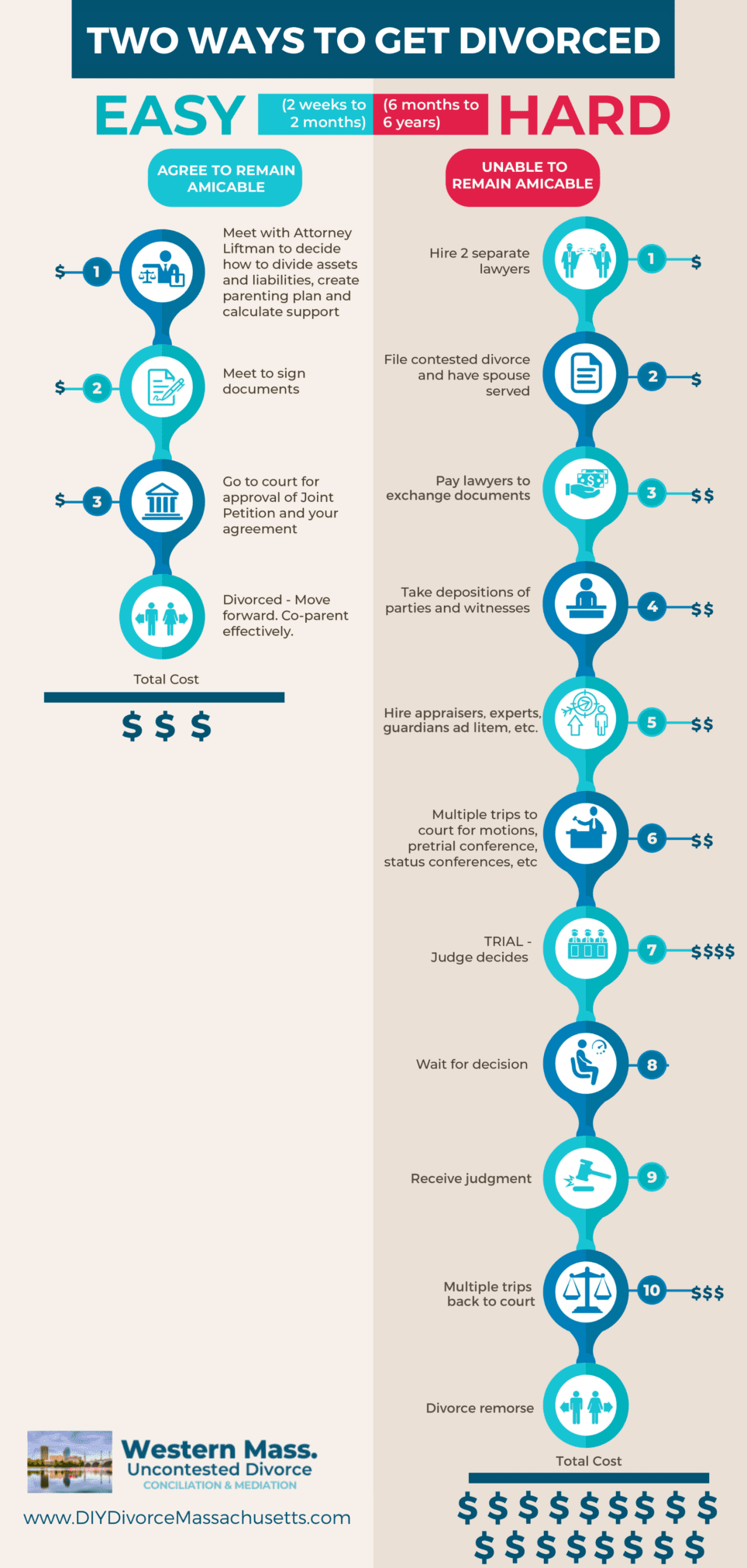In Massachusetts, there are two basic types of divorce. I like to call them the “easy” kind and the “hard” kind.
EASY
Easy: Joint Petition
(also known as a 1A divorce)
The easy kind of divorce is called a Joint Petition, also called an Uncontested Divorce. To file a Joint Petition, you and your spouse must have an agreement on all of the issues that a judge would need to decide in a contested divorce. You are, essentially, writing the Judgment of Divorce for the Judge and asking the Judge to grant you a divorce because your marital partnership has broken down. If the Judge finds your agreement to be fair and reasonable, then he or she will adopt or incorporate your agreement right into the Judgment and grant your divorce. Your agreement then becomes an Order of the Court. It governs all of your rights and responsibilities with respect to property division, support, parenting and other issues.
HARD
Hard: Contested Divorce
The other type of divorce is called a Contested Divorce. There are two types. One requires the party asking for divorce to prove that the other spouse is “at fault” for one of a variety of reasons. This type of divorce is seldom used any more because it requires the person filing to prove the fault in a trial. It is difficult to settle because the other spouse is not likely to acknowledge that they are at fault.
The more common type of Contested Divorce is called a “no-fault” divorce. This divorce, like the Joint Petition, is based upon the breakdown of the marital partnership. The Court doesn’t inquire about the reasons behind one or both of you wanting the divorce; rather it merely decides all of the issues of property division, support and parenting that must be included in a divorce judgment. This type of divorce can be very costly. There may be many trips to court for temporary orders, discovery motions, pretrial and status conferences, and trial. There are many documents that must be produced. There may be depositions of the spouses and other witnesses. A trial can last several days and there may even be an appeal. A contested divorce can end up costing tens of thousands of dollars and, in the end, both spouses may end up very unhappy with the result. Why? Well you are asking a judge, who is essentially a stranger, to decide important and intimate issues about your marriage, your children, and your property. The judge’s job is to call it as he or she sees it, not to side with one spouse or the other. I strongly urge all of my clients to reach an agreement whenever possible to avoid giving all control over to a judge.
Divorce the easy way or the hard way. The choice is yours.
So where does Berkshire County Uncontested Divorce come in?
Well, if you both realize that these issues are too important to leave up to a stranger, and that tens of thousands of dollars paid to lawyers may not be money well spent, we can help. If you would prefer to reach a comprehensive agreement and file a Joint Petition, we can help. If you agree on most things but just need some help hammering out the details, we can help. If you agree on everything but know you aren’t the best people to be drafting a legal document that will become your divorce judgment, we can help. If you want to keep the “nasty” out of your divorce, we can help.



